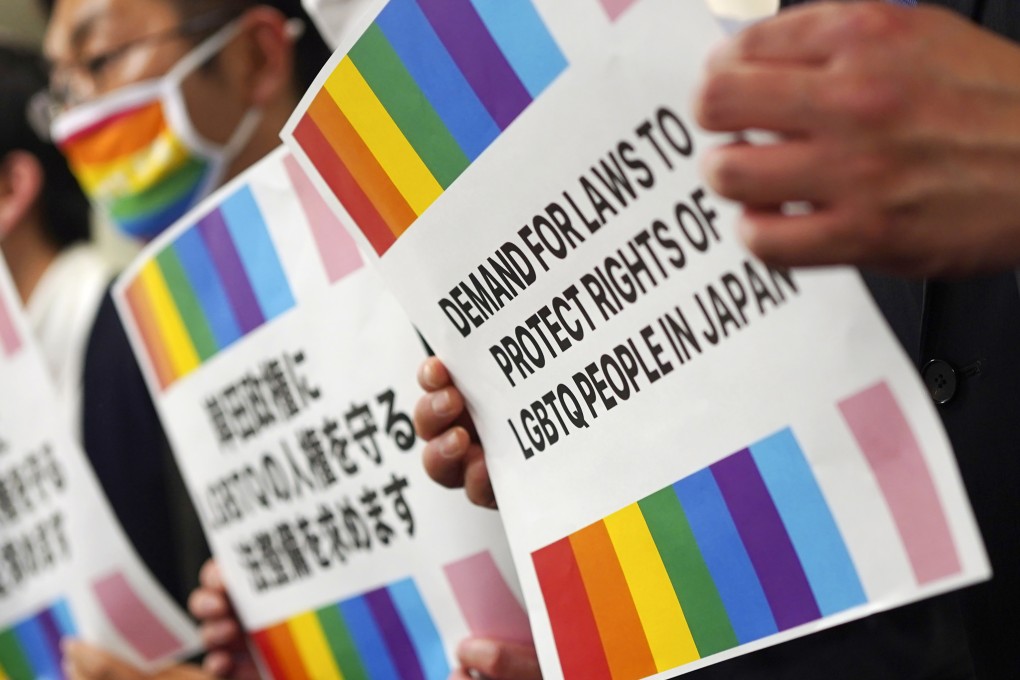Japan high court says same-sex marriage ban is unconstitutional, but dismisses claims for damage
- The court said disallowing the marriages deprived people of their personal identity
- It also dismissed damages claims by the plaintiffs, who had sought US$6,700 each from the central government for emotional distress

But in the first decision by a high court among a series of similar lawsuits filed at five district courts, the Sapporo High Court rejected the plaintiffs’ claim for damages over what they called the government’s negligence in not amending the law to allow them to marry.
“I thought the ruling might be a conservative one, but it ended up exceeding my expectations,” one of the plaintiffs, who did not disclose his name, told reporters after the ruling. “I couldn’t help but cry.”
Earlier in the day in the Japanese capital, the Tokyo District Court said the lack of legal recognition of same-sex marriage in the country is in a state of unconstitutionality, but it also dismissed damages claims by the plaintiffs.
The district court’s Presiding Judge Tomoyuki Tobisawa said the lack of legal arrangements similar to heterosexual marriages for same-sex couples was “a deprivation of a key part of their personal identity.”
But Tobisawa concluded it did not amount to unconstitutionality at present, saying the Diet has “many options” to take action on the issue.
The eight plaintiffs, consisting of company employees and public servants in their 40s and 50s living in Tokyo, said legislative inaction on the matter has violated their rights and caused them emotional distress. They had sought 1 million yen (US$6,700) each from the central government.
